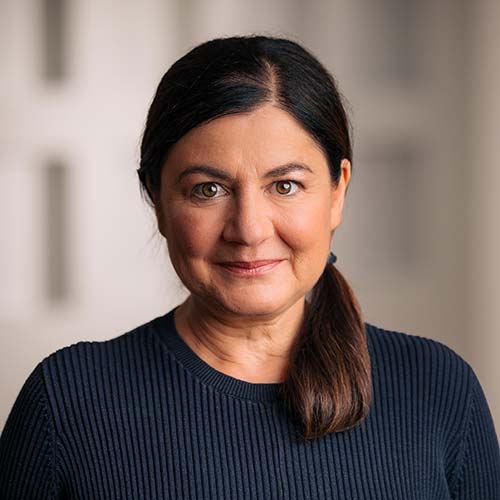Committed people are calmer, happier and more resilient. Their voluntary work also helps them to cope better with personal crises, and they describe their commitment as a source of meaning and emotional grounding. This is a key finding of a qualitative study commissioned by the Arbeiter-Samariter-Bund (ASB) and conducted by the rheingold Institute. Together, 48 two-hour interviews were used to conduct a depth-psychological investigation into how people can be won over to social commitment and voluntary work.
Kissing committed people awake
The findings offer approaches on how to break through the "slumber" of self-referentiality in times of crisis permanence and win people over for service to the community. "The study makes it clear how essential engagement is for our society," says Stephan Grünewald, founder of the rheingold Institute. "It not only supports those in need, but also enriches those involved."
What drives people to volunteer for others?
In order to promote volunteering, it is important to understand people's motives in depth and address them when approaching interested parties. Six central motives for volunteering, ranging from "experience of self-efficacy" to "compensatory function", show how the aspirations and needs of potential volunteers can be specifically addressed.
Find fulfillment in voluntary work instead of a job
While people often experience boredom, heteronomy or a lack of purpose in their job or everyday life, this lack of fulfillment is often found in voluntary work. But even people who have experienced heteronomy can shape and tackle things themselves through their commitment. For example, Elfriede H., 68, a volunteer with ASB-Wünschewagen, says: "As a single mother, I often didn't have it easy. But no matter how desperate I was, there was always someone there to help us a little further. That made me decide that I would volunteer later on."
GenZ in search of community
The GenZ's feeling of being lost is intensified by the progressive erosion of social communities. The younger generation in particular feels less and less integrated into overarching groups and is looking for a supportive community. For example, 18-year-old Lukas H., a volunteer in the youth association ASJ, says: "I became a youth leader myself at the age of 18, and together with my best friend we chair the board. Our managing director put a lot of trust in me and supported me with further training."
Fear of taking on too much time or emotionally in voluntary work
At the same time, the study also reveals the challenges experienced by people who are still looking for a suitable form of volunteering. Many find the decision overwhelming and fear taking on too much time or emotionally. This often leads to initial impulses to volunteer quickly fading away in everyday life. The study identifies this barrier as a key challenge for social organizations. "Professional and caring volunteer management as well as resilient association and social framework conditions are indispensable prerequisites for a lively and sustainable commitment in our association," emphasizes Dr. Stefan Sandbrink, Managing Director of ASB NRW e.V. Only in this way can voluntary work bear fruit in the long term and strengthen the volunteers.
The six engagement motifs in detail:
Experience free self-efficacy - engagement motive no. 1
Many people are under pressure to work efficiently and get things done quickly in their everyday lives, leaving little room for free experimentation and self-determination. There is a great longing to experience self-efficacy and freedom. Commitment is intended to make this wish come true: to create, develop and achieve without targets or instructions. This hands-on mentality, coupled with a great deal of creative freedom, is valued as a particular strength at ASB. Anyone who wants to contribute ideas and actively shape things is given the necessary support and freedom here.
Recommendation: The right amount of freedom and flexibility is crucial. Some people prefer clear structures and regular support, while others find this restrictive. Sensitive support for those involved can find the right balance here.
Compensatory function - engagement motive no. 2
People who do not find fulfillment in their everyday lives often see engagement as a way of compensating for this. This can create a secondary work that compensates for disappointments and counteracts boredom, heteronomy or a lack of meaning.
Recommendation: Clear communication about the content and meaningfulness of volunteering is important in order to be attractive to potential volunteers.
Social integration - engagement motive no. 3:
Volunteering often provides access to social contacts and is particularly sought after moving to a new city. Being part of a community that shares common values is rare in everyday life. The cohesion within ASB is particularly appreciated, many feel welcome from the outset and often make important friendships.
Recommendation: The sense of community can be seen as an invitation to be part of the team. Many volunteers also value access to supra-regional networks and support services.
Experience appreciation - commitment motive no. 4:
Recognition and appreciation from others boosts self-confidence and is important feedback for the time and work invested. The gratitude of colleagues, society or those in need of help creates pride and motivation.
Recommendation: Volunteer work should also be publicly acknowledged. For many, personal feedback or recognition on a small scale is also important in order to feel that they are a valuable part of the whole.
Generating life identity - Commitment motive no. 5:
For many, volunteering reflects part of their own life story or abilities and thus contributes to their own identity. ASB offers a wide range of opportunities to reflect the interests and abilities of those involved.
Recommendation: The wide range of volunteering opportunities should be communicated, even beyond the medical field.
Passive-active reversal - commitment motive no. 6
Volunteering enables many people to break out of the roles they have learned. People who have experienced heteronomy can shape and tackle things themselves through their commitment. In particular, turning from the role of victim to that of helper can help to overcome biographical constraints.
Recommendation: ASB should encourage this momentum and support volunteers in implementing their ideas. The assumption of bureaucratic tasks by full-time staff can be particularly helpful.
Ambassadors for volunteering are above all committed
Aid organizations and volunteer initiatives can pick up on these motives by acting directly at eye level when getting to know each other and giving those interested the feeling that they are an important part of the group. The best advertisement for volunteering are friends and acquaintances who are already involved in volunteering themselves. Especially when they - like the test subjects in the in-depth interviews - show that they have not only helped others through their commitment, but have also gained more life satisfaction or a more grounded attitude to life themselves.
People's treasures and valuing people
"When people stand up for each other, a colorful and strong society is created in which cohesion and empathy take center stage," says Stefanie Könitz-Goes, project manager at ASB NRW. "As part of our association development process 'Human Treasures and Valuing People', we are developing joint strategies and measures for activation, appreciation and participation at ASB."
More information at:
www.asb-nrw.de/engagementstudie
The Arbeiter-Samariter-Bund
The Arbeiter-Samariter-Bund Deutschland e.V. (ASB) is a nationwide, politically and religiously independent, non-profit aid and welfare organization that is supported and funded by over 1.5 million members.
20,000 honorary and voluntary employees
ASB is divided into the federal association, 16 state associations, 194 regional, district and local associations and 131 limited liability companies. ASB as a whole employs over 50,000 full-time staff and more than 20,000 volunteers.





